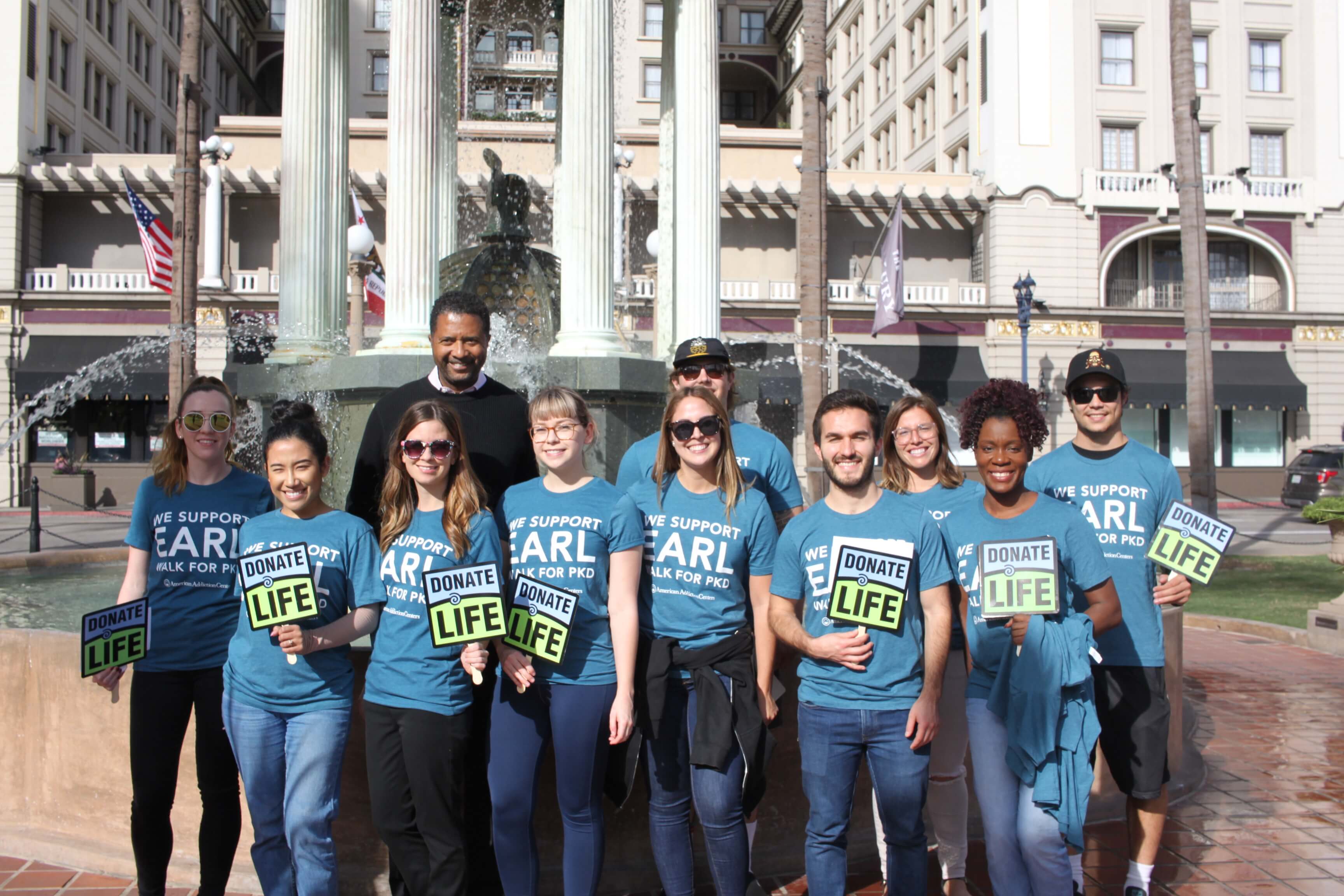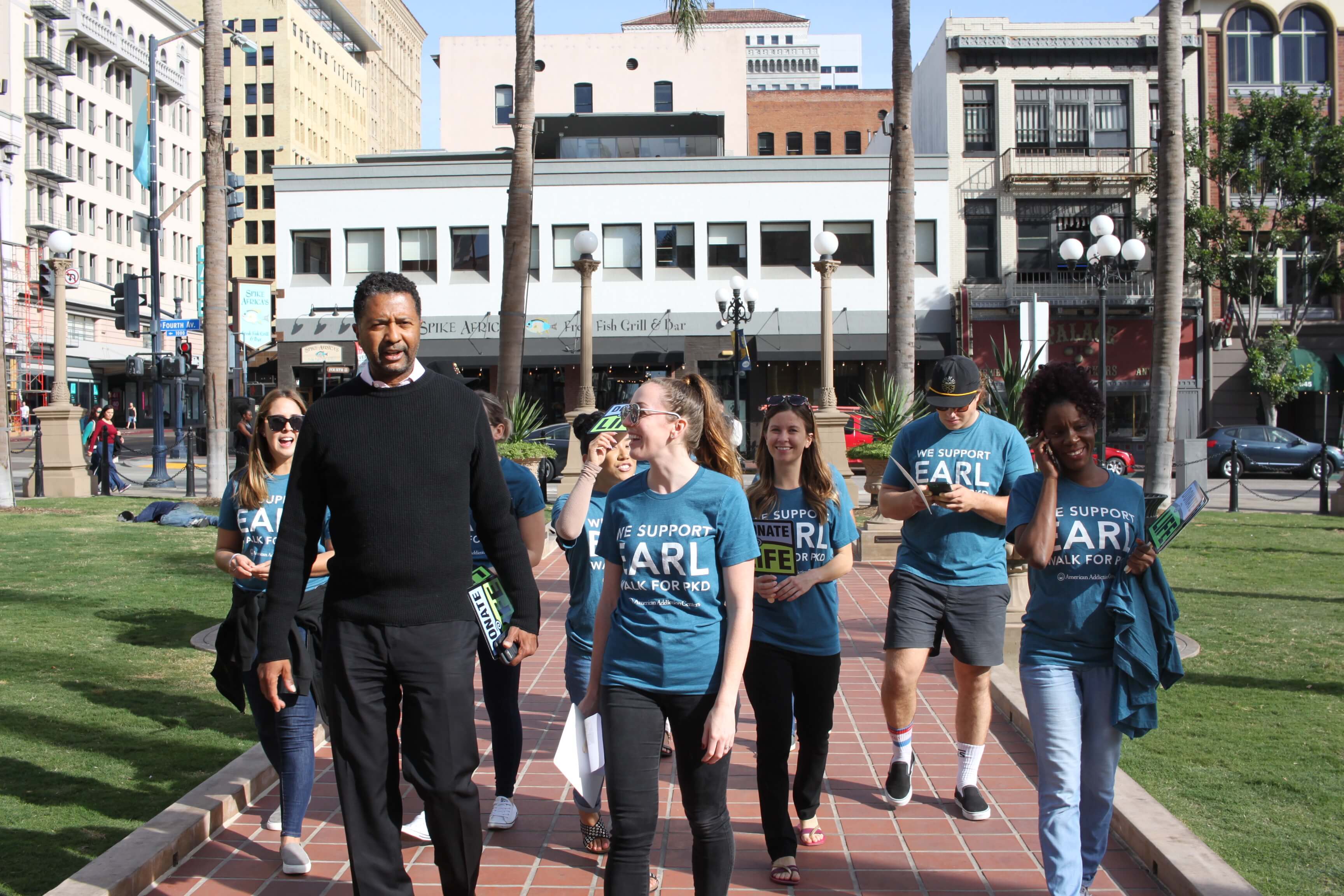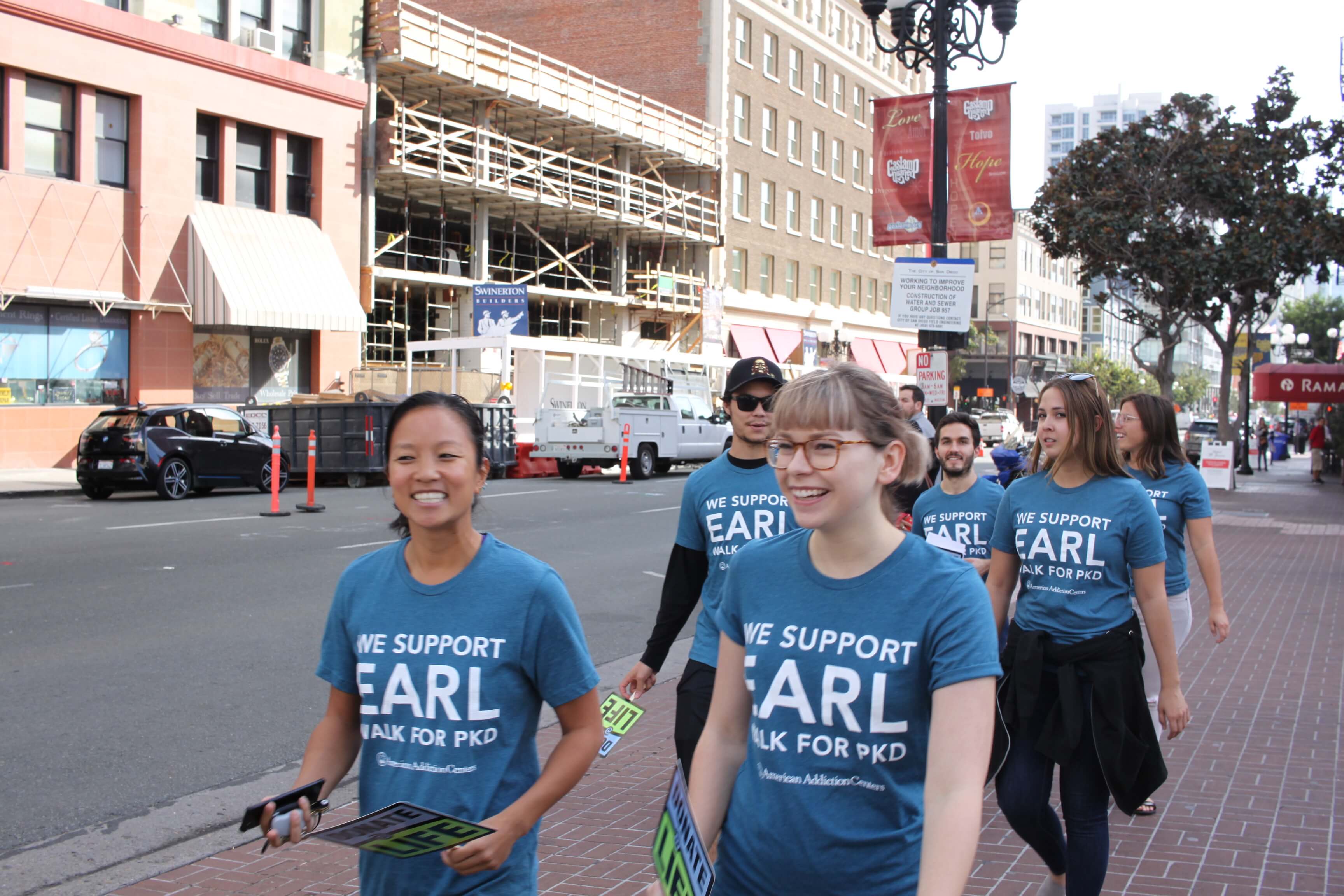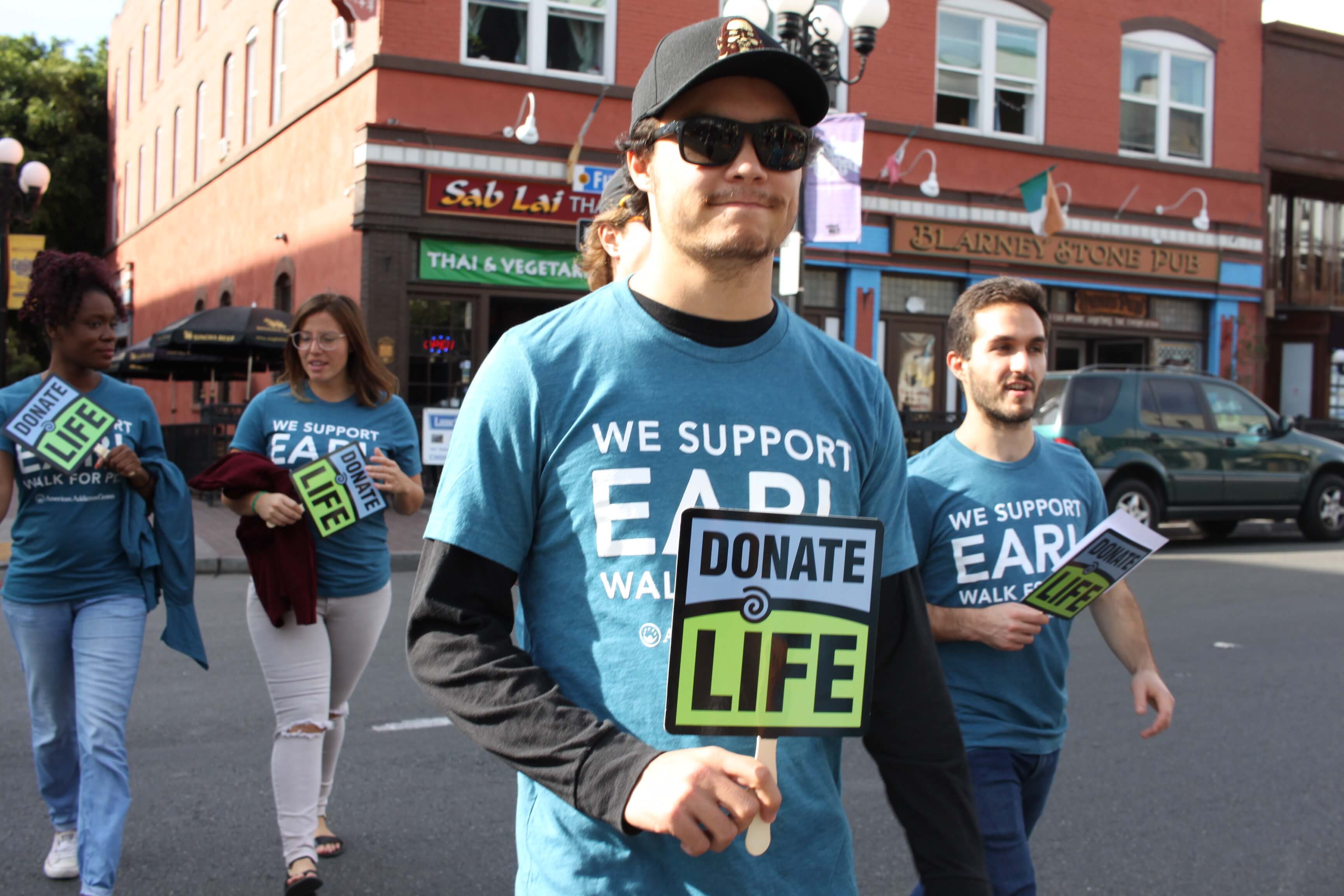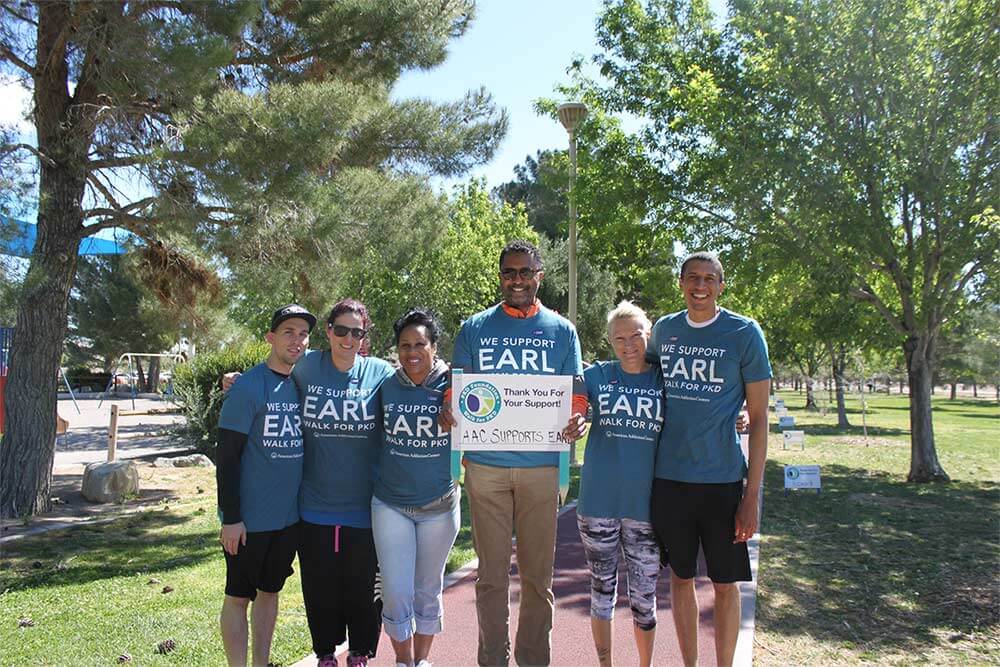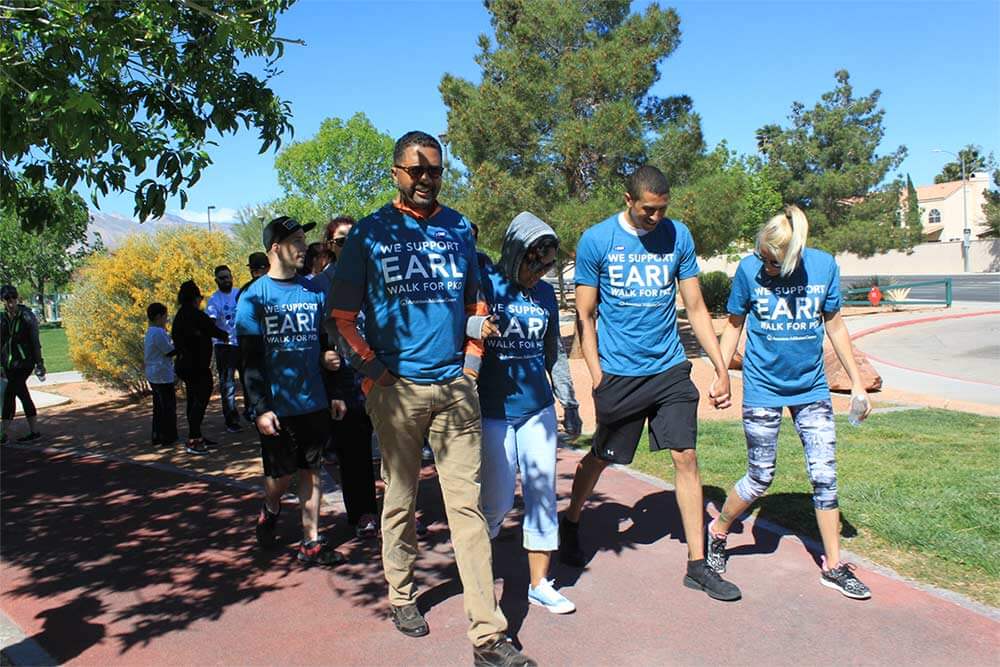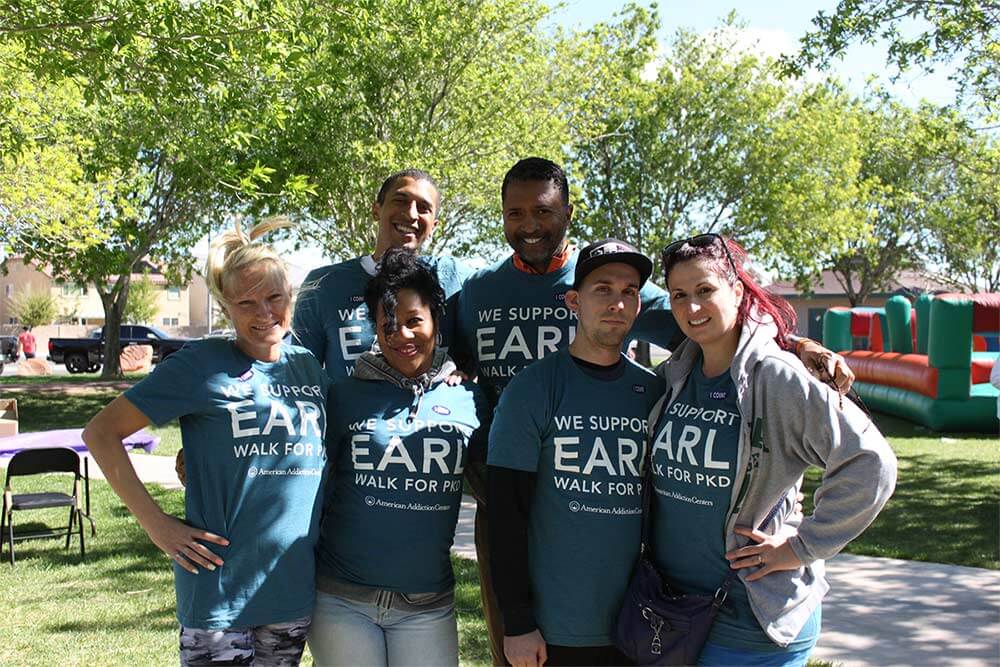AAC Supports Earl
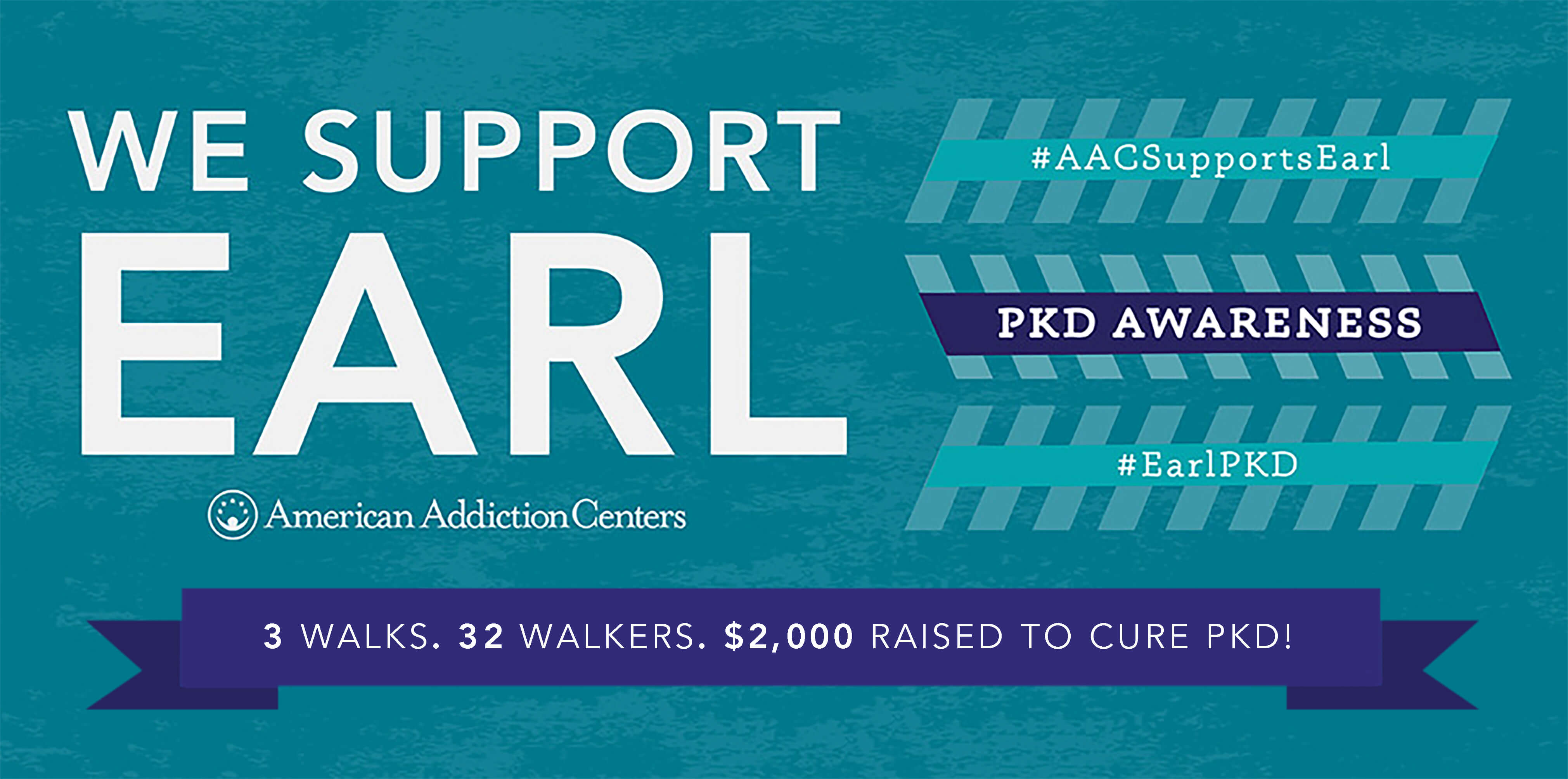
Earl’s Story
Hear Earl’s personal story and learn about his battle with Polycystic Kidney Disease.
A History with PKD
Earl and his family have a long and rough history with PKD. From childhood to now, learn how the family has dealt with the chronic disease.
What is PKD?
Polycystic Kidney Disease is not a very well known disease. Have you heard of it or do you know someone who suffers from it?
Check out this animated video to see what it is and how it affects the body and organs.
How You Can Help
There are a variety of ways that you can not only help Earl, but thousands of others suffering with PKD. Find out how to help in this video.
Every Part Makes a Positive Difference
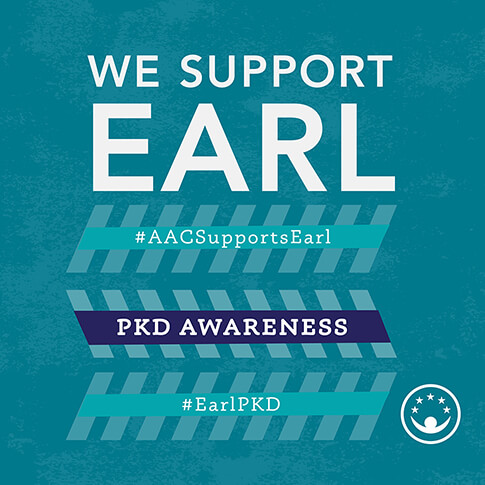
Many know Earl Hopkins, one of American Addiction Centers’ Business Development Regional Managers. Of those that know him, many love and respect him, and his contributions to family, friends, and his company. Earl is on a mission to raise awareness about Polycystic Kidney Disease (PKD), a genetic disease that’s impacted both him and his family. Earl is now in the stages of looking for a living donor for a kidney.
The goal here is to not only raise awareness of PKD and money to support finding a cure, but also to end the stigma surrounding the disease,” said Hopkins. “I deal with the stigma of addiction every day and I have handled that. Genetic diseases bring their own stigma with them and we need to push back against that.
AAC supports Earl, his efforts to find a cure for this disease, and his search for a new kidney to save his life.
See who has pledged to support Earl!
Please send all photos to socialmedia@contactaac.com
Living Donorship
If you have found it in your heart to become a living donor, Earl and AAC thank you. The process to become approved to donate your kidney to Earl, or others, can be started by calling the number below.
Living Donorship happens when someone 18 or over has a healthy organ, like a kidney, that is donated to someone in need. Thanks to updated procedures and improved medications, a genetic link between the donor and recipient is no longer required to ensure a successful transplant. This means that you do not have to be related to an individual in order to give or receive an organ from them.
There is a process of approval before donorship can happen to make sure that the donor is healthy and will not suffer health complications once the organ is donated.
22 people in the United States die each day waiting for a transplant. 121,455 people are on a waiting list for a transplant. You can save a life by becoming a living donor.
~ for Jessica Luga on behalf of Kidney Donorship for Earl Hopkins ~
~ for Miguel Can on Behalf of Kidney Donorship for Earl Hopkins ~
